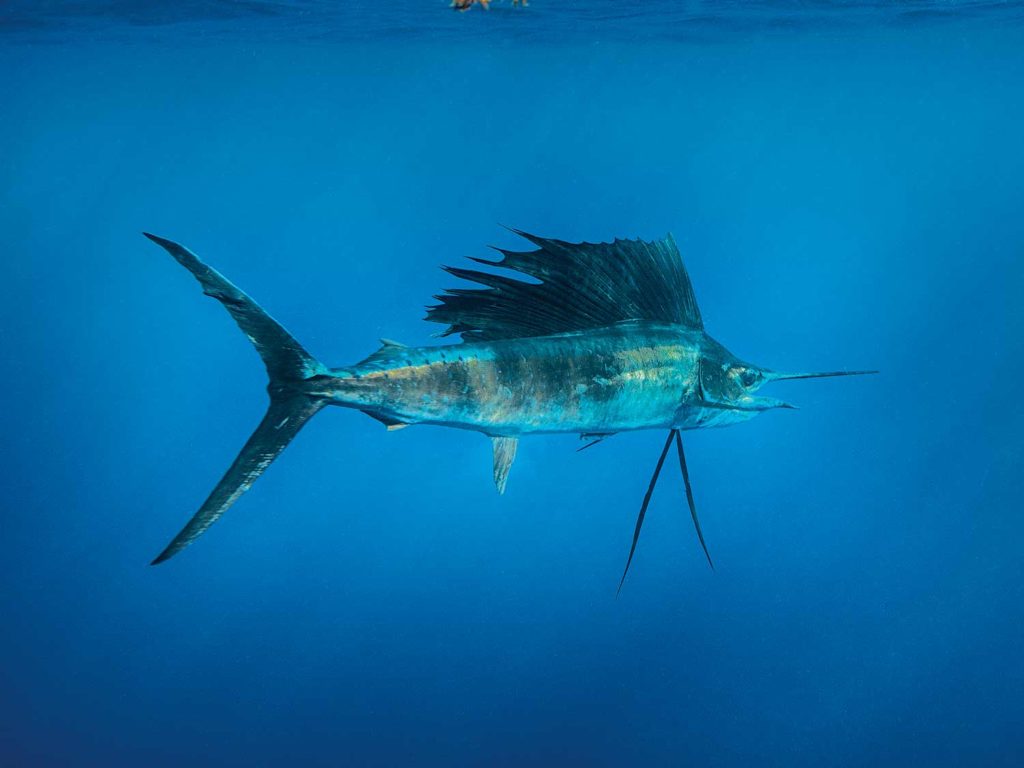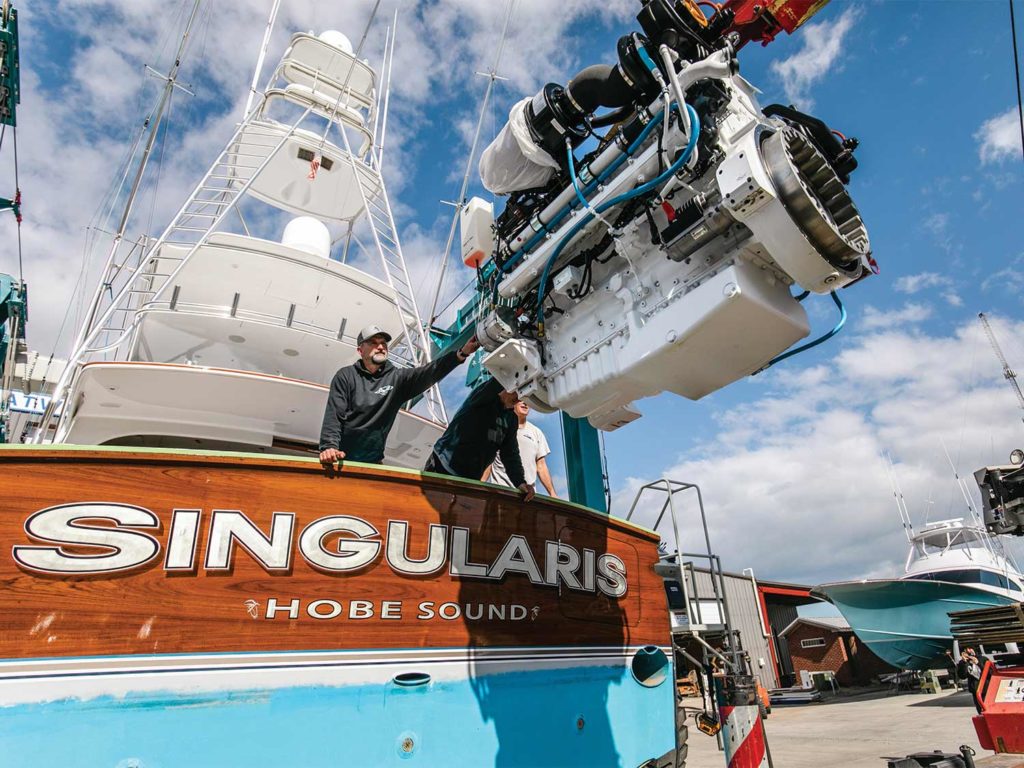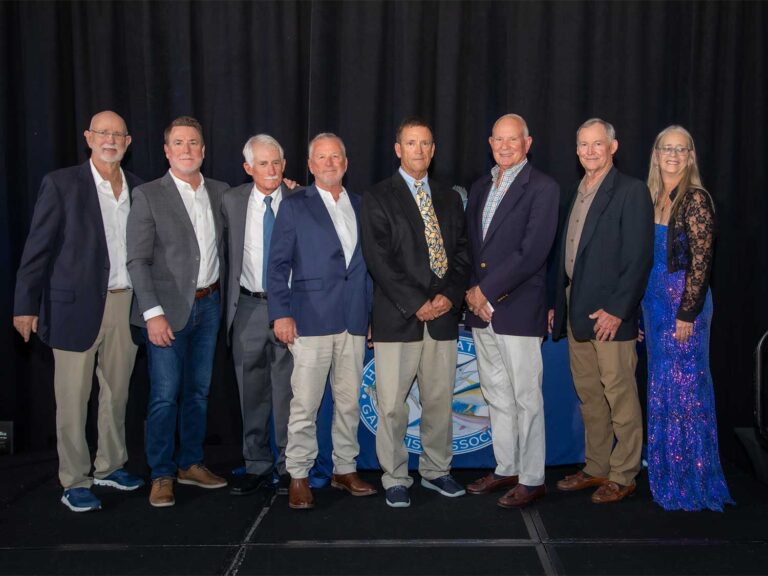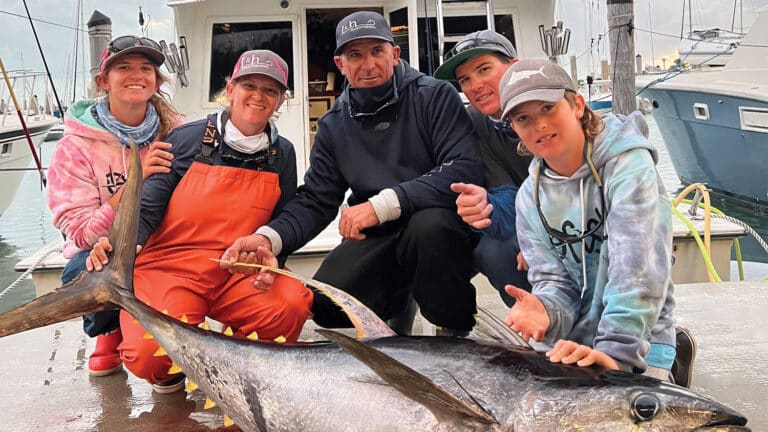
Special delivery: Sign up for the free Marlin email newsletter. Subscribe to Marlin magazine and get a year of highly collectible, keepsake editions – plus access to the digital edition and archives.
The ups and downs of a day on the water are all too often told only by its victories. But what about the days that don’t go as planned? For me, those are the days that make me a better captain, and my crew a better crew. Not to mention, the only way to grow is to learn from our mistakes. Because really, failures are just missteps, and that is how you learn.
This has undoubtedly been one of the most difficult seasons I’ve had in quite a while. Fishing has been slow, and opportunities to get out have been few and far between, which has left me with a lot of time at the dock. There’s an old saying, “Ships and men rot in port,” and I would have to agree after the past few months I’ve had. It has been hard and discouraging but not unsung.
Even though the fishing days have been few, it has been a very good season for growth. When things don’t go as planned or when misfortunes happen, we have the opportunity to wallow in that victimhood,
or we can rise up and look at what we can learn and find ways to move forward.
Watch: We show you how to rig one of the best baits for blue marlin: the swimming mackerel.
Southbound and Engine Down
Heading home this past fall from Cape Cod, Massachusetts, after a good bluefin tuna season, I blew an engine just 5 miles from Cape May, New Jersey. While limping to the yard in North Carolina on one engine might seem simple, the fall’s nor’easters were in full effect, and it was anything but simple. We ended up waiting on the weather and making our way to North Carolina over a period of five days—getting passed by sailboats and looking all amateur when docking at every stop.
After arriving at Bayliss Boatworks, the process of making a rather large decision began. A full repower is something owners and captains plan over years, but now we were faced with doing the same planning and work in the midst of a severe supply and labor shortage due to the pandemic. And this time around, I relied heavily on the team at the Bayliss yard to help the project be successful.
After a couple of weeks working through all the details and ordering parts, we were underway once more, and the crew and I were headed back to South Florida to take advantage of the sailfish season. With a 40-foot Jupiter in tow and a supportive owner, we were ready to get back to fishing.
Reality Sets In
Anyone who’s fished the South Florida sailfish season can attest that it is not for the faint of heart, especially for those with a small(er) boat. It’s cold, it’s rough, and it doesn’t help that good fishing is not easy to come by. I knew it wasn’t going to be an ideal season.
With our center-console, Sequentis, and a new crew, we began our 2022 season late. As expected, the weather didn’t cooperate, and neither did the fishing. After our first few days, I had not raised a sail, and the pressure was mounting. Compared with our previous season, it was frustrating at best, and with not many opportunities to make all the wrongs right, I was beginning to feel defeated.
I had always been one to get fired up about any challenge or any opportunity to get out on the water, but this season, the thought of fishing came as more of a duty than an opportunity, and unfortunately, the crew morale was low as well.
With plenty of time on our hands and a strong feeling of failure ever-present in my mind, I made the decision to take it head-on and turn things around. I started by noting where we fell short and took an honest look at what was right and what was wrong. I slowed it all down and began to focus on the little things. So, with a renewed perspective and some goals in mind, I hit the reset button.

Making the Best of It
I know I’m not alone. Everyone has had unsuccessful days—or weeks—on the water and has felt the sting when nothing goes as planned. This why it’s important to take advantage of the bad days as much as the good ones. It is, admittedly, difficult to do, but it is so important to realize that there really isn’t such a thing as a bad day on the water. So much can be learned, and there are so many good people to share the day with. While this isn’t always my first thought, it is my occupation, and I have had so many good days that I often lose my perspective when faced with the bad ones. Keeping perspective is really what has made me a better person on a daily basis—not just at work, but at home as well. It’s the difference between being grateful or ungrateful, successful or unsuccessful, and ultimately having confidence or having none at all.
Confidence is a funny thing. It really seems to come and go like the wind: One minute you are on top of the world, and the next, you aren’t. It’s a made-up feeling based on your environment at the time. I am a true believer in not operating on my feelings, but to operate only on facts and knowledge. Feelings are great, but often, they are also superficial and can’t withstand the stress of coming up empty-handed on the trip.
After many years of running sportboats, yachts and pretty much anything that floats, I know now that preparation is where you find success. It’s where you can find your facts and knowledge; it’s also what makes a day on the water a success or a failure.
Read Next: Meet the man behind the dream: Bill Royster.
For example, when you think about planning your day, a few simple, creature comforts come to mind: tackle, food and drinks, then the fishing. Three out of those four you can control; the fourth you cannot.
The gear you bring with you can be a real game-changer. We go over ours with a fine-toothed comb to be sure everything is in working order to avoid any failures. While tackle is also an item of preference, I make sure we have options, just in case we have to switch gears. We might head out in the morning targeting sails but could end up deep-dropping for tilefish in the afternoon. The more that you’re ready for, the better your odds are of making the day a success.
You might measure your success by how many fish you catch, but your guests will likely remember the overall experience—the conversation, the laughs and, hopefully, the fishing. Success is especially sweet when surrounded by blue water, and your guests, closest friends and family—all while waiting on the bite. These are the things that truly make a great day on the water. So, no matter how bad it might seem at the time, remember: It can always get worse. I’m just thankful that I was able to wake up and make someone smile today.







